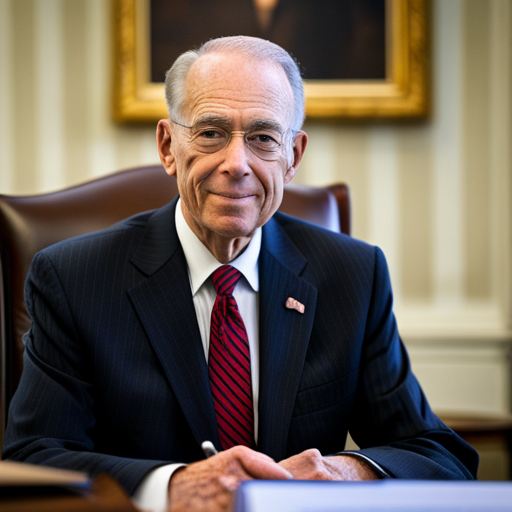Sen. Chuck Grassley's Role in Jan. 6 Intrigue Raises Questions

Grassley's position as Senate president pro tempore during the certification of the presidential election on Jan. 6, 2021, sparked significant intrigue and speculation.
The events leading up to the January 6th Capitol insurrection continue to be a subject of investigation and analysis. Among the key figures involved, Senator Chuck Grassley's role as Senate president pro tempore has generated significant intrigue. As the most senior senator in the majority at the time, Grassley was poised to preside over the counting of electoral votes to certify the presidential election. This article delves into the details surrounding Grassley's involvement and the questions it raises about the events leading up to January 6th.
Grassley's Potential Role and the Constitution's Requirements
The Constitution mandates that the vice president, who also serves as the president of the Senate, presides over the counting of electoral votes. However, there have been instances in history where the role has fallen to the Senate president pro tempore. In 2021, that position was held by Senator Chuck Grassley, which led to speculation about his potential involvement on January 6th.
Duncan Carling's Inquiry into Grassley's Involvement
During a disbarment trial, California state bar attorney Duncan Carling questioned John Eastman, a prominent attorney involved in the events leading up to January 6th, about Grassley's role. Carling probed Eastman on his contacts with other individuals involved in the Georgia indictment, including attorney Robert Cheeley and attorney Kenneth Chesebro. Chesebro played a significant role in Trump's efforts to assemble false slates of pro-Trump electors in seven states won by Joe Biden. Eastman indicated that he had minimal contact with Chesebro until late December, when he sought Chesebro's input on a memo he authored regarding options for Vice President Mike Pence on January 6th. An email exchange between Eastman and Trump adviser Boris Epshteyn revealed that Eastman was open to Chesebro's edits to the memo. In the same email, Eastman mentioned his hope that members of Congress would not take actions that might "constrain Pence (or Grassley)" from asserting the power to block Biden's election.
Grassley's Lack of Knowledge and the Unanswered Questions
A spokesperson for Senator Grassley stated that he had no indication that Trump and his aides were discussing the possibility of Grassley presiding over the January 6th joint session. Grassley himself had previously indicated that he had no knowledge of Eastman's strategy to use the session to block Biden's election. However, the exchange between Carling and Eastman highlights the existence of significant unknown details surrounding the planning by Trump and his allies leading up to January 6th.
Grassley's Controversial Statement and Chesebro's Mention
On January 5th, 2021, Grassley created a furor when he told reporters that he would be presiding over the Senate because he didn't expect Vice President Pence to be there. Pence's staff quickly corrected the record, stating that Grassley had been "misinterpreted" and was only suggesting that he might fill in for Pence during certain portions of the proceedings. Additionally, Chesebro had mentioned the possibility of Grassley or another senior Republican presiding in a December 13th, 2021 email.
The role of Senator Chuck Grassley in the events leading up to January 6th continues to be a subject of speculation and investigation. While Grassley himself has denied any knowledge of the strategies employed by Trump and his allies, questions remain about the extent of his involvement and the discussions that took place behind the scenes. As the investigation into the Capitol insurrection progresses, uncovering the truth about Grassley's role may shed light on the broader context and motivations behind the events of that fateful day.